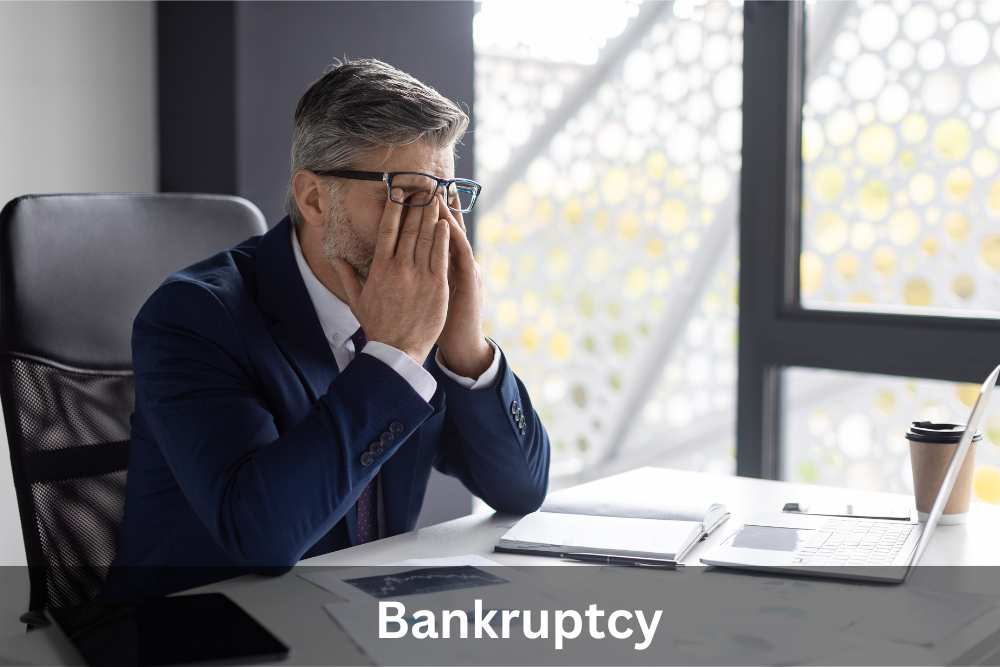- LAW OFFICES OF SRIS, P.C. ATTORNEYS AT LAW


Home » Bankruptcy Lawyer Charlottesville VA

If you are facing overwhelming debt and financial difficulties, consult with a bankruptcy lawyer charlottesville VA. The Law Offices of SRIS.P.C. in Charlottesville, VA, have extensive experience in guiding individuals and businesses through the bankruptcy process. With their knowledge and experience, they can advise you on the ideal course of action and provide the legal help you need during this trying time.
Whether you are considering Chapter 7 or Chapter 13 bankruptcy, their team of dedicated attorneys will work to protect your rights and help you obtain a fresh start. For personalized and effective legal representation, contact the bankruptcy lawyer in Charlottesville VA, relies on.
Bankruptcy is a legal process in which individuals and businesses who cannot repay their creditors seek relief from some or all of their debts. Bankruptcy is governed by federal bankruptcy laws in Charlottesville, Virginia, and is overseen by the United States Bankruptcy Court for the Western District of Virginia.
Bankruptcy is a legal process in which individuals and businesses who cannot repay their creditors seek relief from some or all of their debts. Bankruptcy is governed by federal bankruptcy laws in the United States and is overseen by the United States Bankruptcy Court.
A premises liability lawyer can help victims of premises liability accidents navigate the legal system and seek compensation for their injuries. These experienced attorneys are knowledgeable about premises liability laws, regulations, and procedures, making them invaluable advocates for victims.
In the United States, there are six types of bankruptcy:
Chapter 7 Bankruptcy:
Chapter 13 Bankruptcy:
Chapter 11 Bankruptcy:
Bankruptcy under Chapter 12:
Chapter 15 Bankruptcy:
Chapter 9 Bankruptcy:
When faced with overwhelming debt, the bankruptcy process in Charlottesville, VA, is a well-structured legal procedure designed to provide individuals and businesses with a path to financial relief. This process is divided into several stages.
Your journey begins with an initial consultation with a bankruptcy lawyer. During this meeting, your attorney evaluates your financial situation and assists in determining the ideal bankruptcy chapter for your specific circumstances.
Once you’ve decided to file for bankruptcy, you’ll work with your attorney to gather important financial documents. These include tax returns, pay stubs, bank statements, and an inventory of your assets and liabilities.
Your Charlottesville Virginia lawyer prepares and files the bankruptcy petition and any accompanying schedules with the bankruptcy court. When these documents are filed, an automatic stay occurs, providing immediate relief from creditor collection efforts.
You must attend a “meeting of creditors,” also known as a 341 meeting, shortly after filing. A bankruptcy trustee and your creditors will have the opportunity to inquire about your financial situation during this meeting.
If you choose Chapter 13, your bankruptcy lawyer charlottesville VA will work with you to create a repayment plan. This plan, which the bankruptcy court must approve, outlines how you will repay your debts over a set time.
Receiving a discharge, which absolves you of qualifying debts, is the ultimate goal of bankruptcy. In Chapter 7, this usually happens a few months after filing, whereas in Chapter 13, it happens after completing your repayment plan.
Having an experienced bankruptcy lawyer charlottesville VA, on your side throughout this process is critical to ensuring the correct and legal completion of each step
It’s critical to remember that bankruptcy should only be used as a last resort. Before declaring bankruptcy, consider other debt-relief options such as debt consolidation, negotiating with creditors, or seeking financial counseling. A knowledgeable bankruptcy lawyer in Charlottesville can help you check these options and determine whether bankruptcy is the optimal solution for your specific situation.
Don’t hesitate to contact us if you need a knowledgeable and experienced bankruptcy lawyer Charlottesville VA. We are here to help you navigate difficult financial times and guide you toward a more secure financial future.
Our dedicated team of legal professionals is standing by to help you. Contact The Law Offices of SRIS.P.C. today to schedule a consultation and begin the process of regaining financial stability.
Debts in Charlottesville, like credit card balances, medical bills, personal loans, and some taxes, may be erased via bankruptcy, depending on the kind of bankruptcy filed and individual circumstances.
When filing for bankruptcy in Charlottesville, you may be able to keep your house and automobile, depending on the kind of bankruptcy, equity, and any exemptions.
Yes, filing for bankruptcy in Charlottesville often results in an automatic stay, which legally prohibits most creditor collection operations, including harassing phone calls and mailings.
Yes, you will have to attend a creditors’ meeting, also known as a 341 meeting, which is usually held in the Charlottesville courthouse.
Your Local Legal Counsel. 25+ Years of Experience in Charlottesville, VA & Beyond. Criminal Defense, Traffic/DUI, Divorce, Child Custody, Personal Injury (Truck & Motorcycle). Let us fight for you! 888-437-7747
© 2024 Charlottesville Virginia Laws